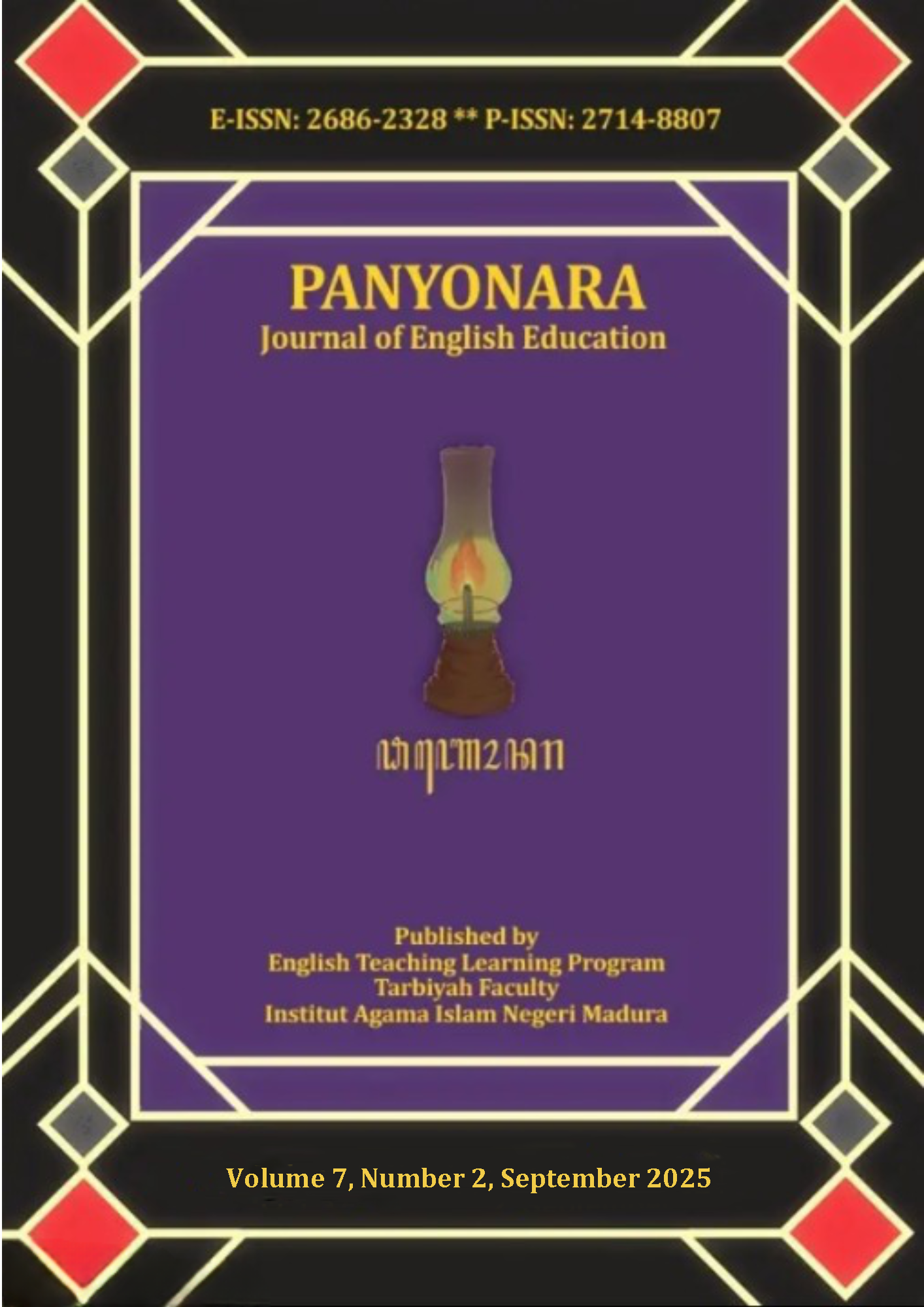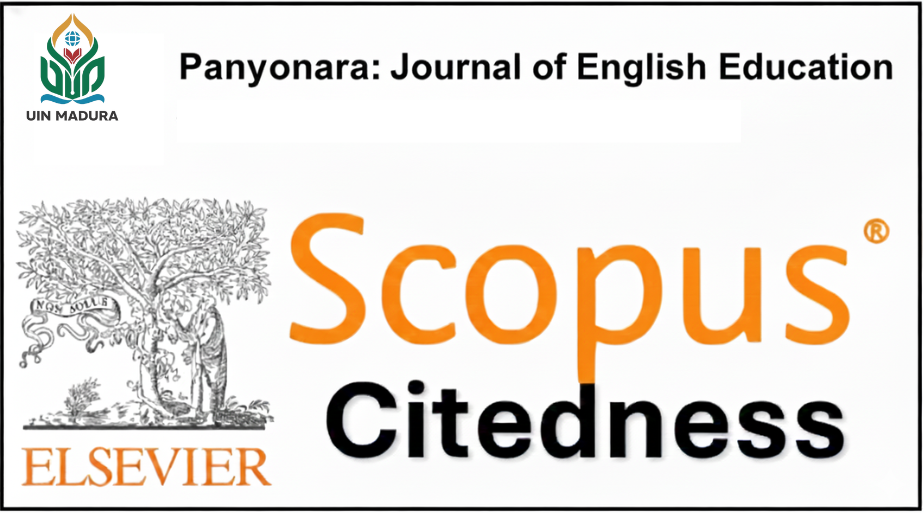The Implementation of Cooperative Learning: A Case Study at International Primary Classroom
 Abstract views: 338
,
Abstract views: 338
,
 pdf downloads: 241
pdf downloads: 241
Abstract
Abstract: Cooperative learning (CL) is an instructional approach that facilitates students’ knowledge construction through collaborative interaction in small groups. This qualitative case study explores how CL has been applied in an international primary classroom setting where located in Gresik East Java Indonesia. Two English teachers were interviewed using semi-structured interview and their classes were observed to collect the data. The data were analysed using thematic analysis. The findings showed that CL enhances active engagement, collaboration, and cognitive learning. However, teachers faced several barriers in implementing CL, including time constraints, differences in student’s skill levels, and classroom management. To address these challenges, teachers employed diagnostic assessments, flexible grouping, and structured reflections. These findings suggest that while CL is beneficial, its success depends on sufficient teacher training, especially in culturally diverse classrooms. The study underscores the importance of sustained professional training and adaptive strategies to maximize the effectiveness of CL in multicultural setting.
Downloads
References
Creswell, J. W. (2014). Research design: Qualitative, quantitative, and mixed methods approaches (4th ed.). Thousand Oaks, CA: Sage Publications.
Deci, E. L., & Ryan, R. M. (2000). The ‘what’ and ‘why’ of goal pursuits: Human needs and the self-determination of behaviour. Psychological Inquiry, 11(4), 227–268. https://doi.org/10.1207/S15327965PLI1104_01
Dörnyei, Z. (2005). The psychology of the language learner: Individual differences in second language acquisition. Mahwah, NJ: Lawrence Erlbaum Associates.
Emmer, E. T., & Evertson, C. M. (2013). Classroom management for elementary teachers (9th ed.). Boston: Pearson.
Karmina, S., Dyson, B., & Setyowati, L. (2024). Teachers' perspectives on implementing cooperative learning to promote social and emotional learning. Jurnal Cakrawala Pendidikan, 43(2), 470-479. https://doi.org/10.21831/cp.v43i2.68447
Karmina, S., Dyson, B., St John Watson, P. W., & Philpot, R. (2021). Teacher implementation of cooperative learning in Indonesia: A multiple case study. Education Sciences, 11(5), 218. https://doi.org/10.3390/educsci11050218
Dollman, L., Morgan, C., Pergler, J., Russell, W., & Watts, J. (2007). Improving social skills through the use of cooperative learning. *Saint Xavier University
Salsabilla, A., Cahyani, A. R., Rahmah, R. R., Astuti, Y. F., & Supeni, I. (2022). The problem with the implementation of cooperative learning in speaking classes for elementary school. Indonesian Journal of Elementary Education and Teaching Innovation, 1(2). http://dx.doi.org/10.21927/ijeeti.2022.1(2).1-11
Dakhi, O. (2022). Implementasi model pembelajaran cooperative problem solving untuk meningkatkan kreativitas dan prestasi belajar. Educativo: Jurnal Pendidikan, 1(1), 8-15. DOI: https://doi.org/10.56248/educativo.v1i1.2
Chakyarkandiyil, N., & Prakasha, G. S. (2023). Cooperative Learning Strategies: Implementation Challenges in Teacher Education. Problems of Education in the 21st Century, 81(3), 340–349. DOI: 10.33225/pec/23.81.340
Tran, V. D. (2014). The effects of cooperative learning on the academic achievement and knowledge retention. International Journal of Higher Education, 3(2), 131–140. https://doi.org/10.5430/ijhe.v3n2p131
Köroğlu, Z. Ç. (2021). The effect of cooperative learning on speaking skills and motivation in primary school students. International Journal of Instruction, 14(2), 123–138. https://doi.org/10.29333/iji.2021.1428a
Mendo-Lázaro, S., León-del-Barco, B., Polo-del-Río, M.-I., & López-Ramos, V. M. (2021). The Impact of Cooperative Learning on University Students’ Academic Goals. Frontiers in Psychology, 12, 787210. doi: 10.3389/fpsyg.2021.787210
Salamah, E. R., Rifayanti, Z. E. T., & Trisnawaty, W. (2024). The effect of cooperative learning model on elementary school students' learning motivation. Jurnal Ilmiah Pendidikan Dasar, 11(1), 18-31. DOI: 10.30659/pendas.11.1.18-31
Amrullah, K., & Suwarjo, S. (2018). The effectiveness of the cooperative problem-based learning in improving the elementary school students’ critical thinking skills and interpersonal intelligence. Jurnal Prima Edukasia, 6(1), 66-77. DOI: 10.21831/jpe.v6i1.11253.
UNICEF. (2024). Global Annual Results Report 2023. UNICEF. https://www.unicef.org/reports/global-annual-results-2023
World Economic Forum. (2020). The Future of Jobs Report 2020. World Economic Forum. https://www.weforum.org/stories/2020/10/top-10-work-skills-of-tomorrow-how-long-it-takes-to-learn-them
Susanto, A., Iswan, H., Bahar, M., Misriandi, F., & Farihen, F. (2023). The application of cooperative models to improve students' interpersonal skills on a social studies learning. University of Muhammadiyah Jakarta Repository. DOI: repository.umj.ac.id/6377.
Chakyarkandiyil, N., & Prakasha, G. S. (2023). Cooperative Learning Strategies: Implementation Challenges in Teacher Education. Problems of Education in the 21st Century, 81(3), 340–349. DOI: 10.33225/pec/23.81.340.
Malusà, G. (2020). Challenges experienced by teachers in implementing cooperative learning activities after brief in-service training. IAIE Conference Proceedings, 159-178. DOI: 9789090333755.
Page, A. (2023). Implementing Cooperative Learning: A Consideration of Barriers and Enablers. University of Canterbury Repository. DOI: hdl.handle.net/10092/14637.
Gillies, R. M. (2016). Cooperative learning: Review of research and practice. Australia Journal of Teacher Education, 41(3), 39 54. https://doi.org/10.14221/ajte.2016v41n3.3
Hattie, J., & Donoghue, V. (2016). Learning strategies: A synthesis and conceptual model. Science of Learning, 1(1), 1–13. https://doi.org/10.1038/npjscilearn.2016.13
Hattie, J., & Timperley, H. (2007). The power of feedback. Review of Educational Research, 77(1), 81–112. https://doi.org/10.3102/003465430298487
Johnson, D. W., & Johnson, R. T. (2009). An elaboration of social interdependence theory. Psychological Bulletin, 135(2), 211–225. https://doi.org/10.1037/a0014350
Johnson, D. W., Johnson, R. T., & Smith, K. A. (2014). Cooperative learning: Improving university instruction by basing practice on validated theory. Journal on Excellence in College Teaching, 25(3–4), 85–118.
Rodphotong, S. (2018). Cooperative learning in EFL classrooms: Effects on achievement and attitudes. Asian EFL Journal, 20(7), 56–72. https://www.elejournals.com/asian-efl-journal/
Smith, B. L., MacGregor, J., Matthews, R., & Gabelnick, F. (2005). Learning communities: Reforming undergraduate education. San Francisco: Jossey-Bass.
Tomlinson, C. A. (2001). How to differentiate instruction in academically diverse classrooms (2nd ed.). Alexandria, VA: Association for Supervision and Curriculum Development.
Vygotsky, L. S. (1978). Mind in society: The development of higher psychological processes. Cambridge, MA: Harvard University Press.
The journal uses an Open Access policy under a Creative Commons Attribution-NonCommercial 4.0 International License. Authors who publish with this journal agree to the following terms:
- Authors retain copyright and grant the journal right of first publication with the work simultaneously licensed under a Creative Commons Attribution License that allows others to share the work with an acknowledgment of the work's authorship and initial publication in this journal.
- Authors are able to enter into separate, additional contractual arrangements for the non-exclusive distribution of the journal's published version of the work (e.g., post it to an institutional repository or publish it in a book), with an acknowledgment of its initial publication in this journal.
- Authors are permitted and encouraged to post their work online (e.g., in institutional repositories or on their website) prior to and during the submission process, as it can lead to productive exchanges, as well as earlier and greater citation of published work.

















